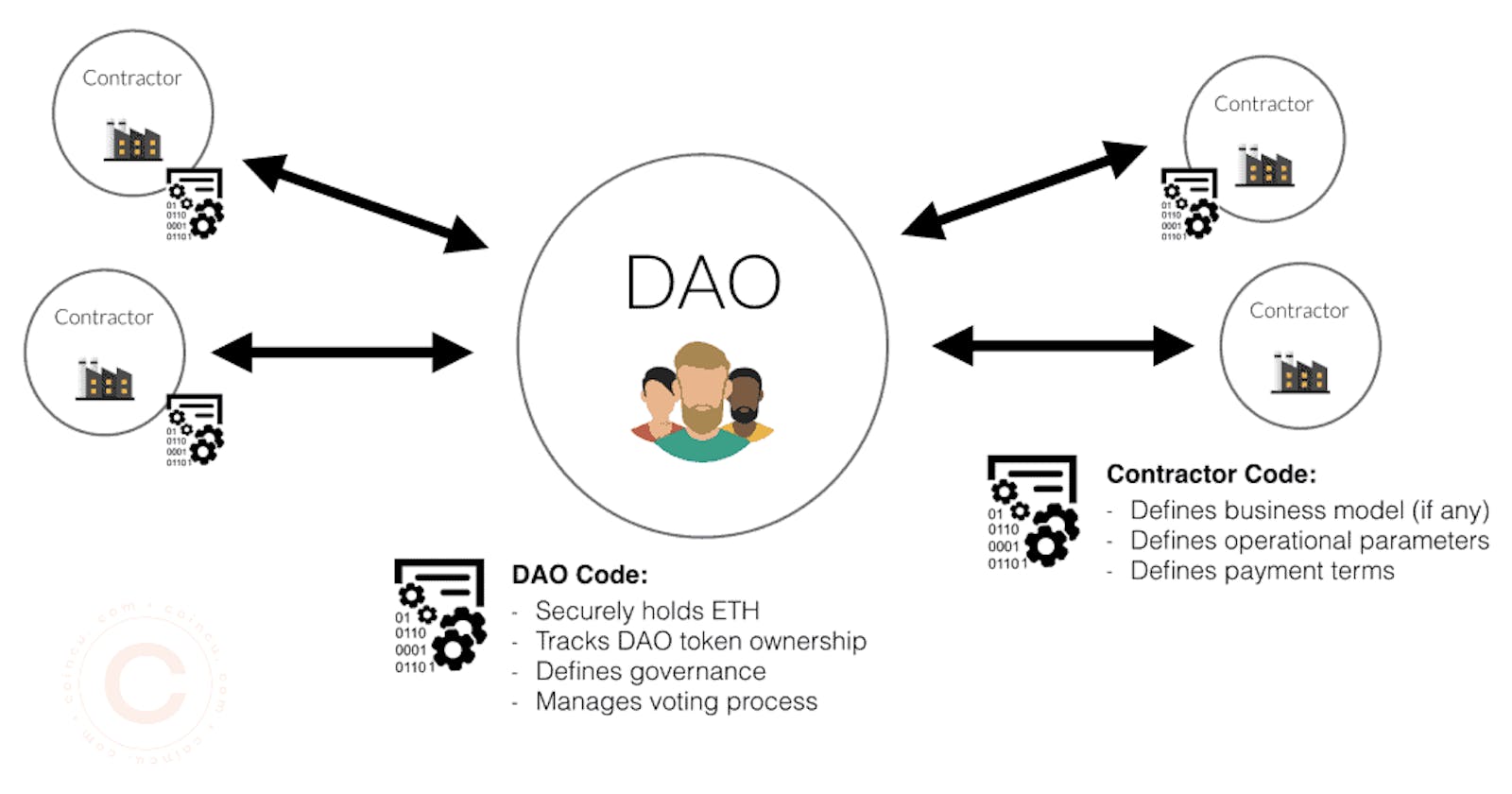Decentralized Organizations of the Future: An in-depth look at Decentralized Autonomous Organizations (DAOs)
A decentralized autonomous organization (DAO) is a digital organization that is run by a set of rules encoded as computer programs on a blockchain network. The rules, or smart contracts, are executed automatically by the network, and the organization is governed by its members, who collectively make decisions about how the organization should operate.
The concept of a DAO was first introduced in 2013 by Vitalik Buterin, the co-founder of Ethereum, as a way to create decentralized, democratic organizations that could operate without the need for intermediaries. The idea was to use blockchain technology to create a transparent and incorruptible system for decision-making and governance.
DAOs are particularly suited for use cases where trust is a critical component and there is a need for transparency and accountability. Examples include venture capital funds, decentralized exchanges, and prediction markets.
The most famous DAO is the “DAO” (Decentralized Autonomous Organization) that was created on Ethereum blockchain in 2016. It raised $150 million in a crowdsale to fund a venture capital fund, but was hacked and the funds were stolen. This event led to the creation of the hard fork, split Ethereum blockchain into Ethereum (ETH) and Ethereum Classic (ETC)
DAOs operate on the principle of “code is law” — the smart contracts that govern the organization are the ultimate authority, and the rules they enforce cannot be altered by any single member or group of members. This ensures that the rules of the organization are transparent and objective, and that all members are treated fairly.
To become a member of a DAO, an individual must first acquire the organization’s native token. This gives them the right to participate in decision-making and to receive a share of the organization’s profits, if any. Members can also propose changes to the organization’s rules and vote on proposals put forward by other members.
DAOs offer a number of advantages over traditional organizations, including:
Decentralization: DAOs are decentralized, meaning that they are not controlled by any single person or entity. This makes them more resistant to censorship, fraud, and other forms of manipulation.
Transparency: DAOs operate on a blockchain, which is a public ledger that records all transactions. This makes the organization’s activities transparent, allowing members and outsiders to see exactly how the organization is being run.
Immutability: Smart contracts are stored on the blockchain and once deployed, can’t be altered. This makes it impossible for anyone to change the rules of the organization, or to divert funds for their own use.
Automation: DAOs can automate many of the processes that are typically handled by intermediaries, such as voting, record-keeping, and dividend payments.
For example, a DAO can be set up as a decentralized voting system, where members can vote on proposals put forward by other members. The proposals can range from how to allocate funds, to how to change the organization’s rules or structure.
Another way a DAO can be set up is with a decentralized funding mechanism, where members can submit proposals for funding and other members can vote on whether to approve the proposals. This type of DAO is commonly used for decentralized finance (DeFi) platforms or venture capital funds.
The smart contracts that govern a DAO also handle the distribution of profits and dividends among members. Depending on the organization’s structure, the smart contracts can automatically distribute profits to members according to their stake in the organization. For example, if a DAO operates as a decentralized exchange and makes a profit from trading fees, the smart contracts can automatically distribute a portion of the profits to members who hold the DAO’s native token.
Despite the potential benefits, DAOs still have some drawbacks and challenges that must be addressed. For example, they can be vulnerable to attacks, including the aforementioned attack on The DAO in 2016. Additionally, it can be difficult to achieve consensus among members, and the rules of the organization may be too rigid and inflexible to adapt to changing circumstances.
In conclusion, DAOs are a relatively new concept that is still in the early stages of development, but they have the potential to revolutionize the way organizations are run by creating a more transparent, democratic, and decentralized system of governance.
